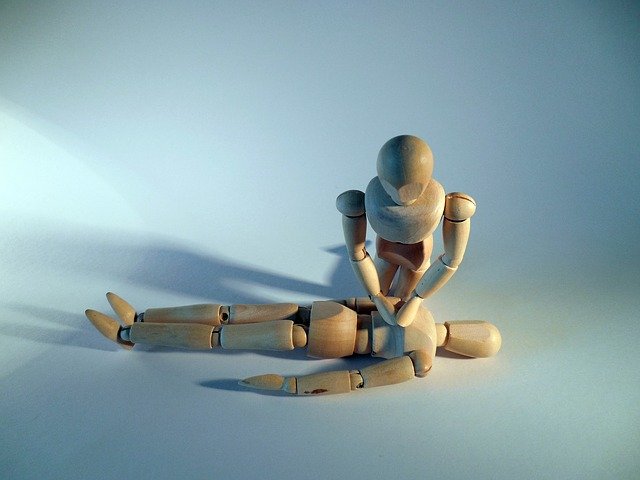Lifestyle
6 Reasons Why First Aid Training Is Crucial

While it is not a pleasant thought, the truth is that accidents are inevitable, and there is no guarantee that people are safe from injuries, traumas, and illnesses. The best thing you can do is to be prepared on how to handle them when they happen. Basic first aid training can be the difference between life and death. Read on to learn why basic first aid training is necessary.
1. It saves lives
Every day, hundreds of people are hurt or killed because of the lack of a quick and efficient first aid response. Basic first aid training and willingness to help is usually the difference between those who survive and those who don’t in an emergency. Typically, performing basic life support on victims while waiting for medical emergency personnel to arrive doubles their chances of survival. For instance, emergency resuscitation lessons can help you save a life before an ambulance arrives. While it’s common for people to rush to help an injured person, a person with basic first aid training is more confident, reliable, and in control of their actions while responding to a life-threatening situation.
2. Increase victim’s comfort
While not all illnesses, accidents, and injuries require a trip to a medical facility, most of them cause pain and suffering to the patient. A person with basic first aid training may be able to help in such cases. They know what to do to alleviate the pain and discomfort, at least temporarily. They will also be able to provide emotional support, which helps the victim to feel more secure and reduce their anxiety levels.
3. Prevent situations from worsening
Having basic first aid training can help to prevent emergency situations from deteriorating. For instance, if a victim has got a deep gash and bleeding profusely, they may suffer severe loss of blood without proper and prompt first aid response. This is where first aid training comes in handy — knowing simple procedures like applying the right amount of pressure can prevent the situation from worsening. More importantly, it enables you to stabilize the victim until emergency medical personnel arrive.
4. It can help you to convey important information
In the process of responding to an emergency and staying with the victim, you can gather critical information. You know how the victim got injured and their current situation. When the emergency medical team arrives, giving them such details would help them decide on the most appropriate treatment procedure and speed up the recovery process.
5. It promotes healthy living
If you have received basic first aid training, you understand how important it is to prioritize your safety, and by doing that, you are better placed to help victims. It also helps you to be always aware of potential safety and health hazards in your immediate environment.
6. A positive work environment
If you are an employer, having your employees trained on basic first aid is an excellent way to show them you care about their safety, which helps to create a positive work environment.
Endnote
Accidents happen when least expected, and sudden illnesses like stroke, severe loss of blood, and heart attack, require immediate and efficient medical intervention. Basic first aid knowledge can help you save a life, increase the victim’s comfort and prevent a situation from becoming worse.
Lifestyle
When Seasons Shift: Dr. Leeshe Grimes on Grief, Loneliness, and Finding Light Again

Some emotional storms arrive without warning. A sudden change in weather, a holiday approaching, or even a bright sunny day can stir feelings that don’t match the world outside. For many people, the hardest seasons are not defined by temperature; they are defined by what’s happening inside, where grief and loneliness often move quietly.
This is the emotional terrain where Dr. Leeshe Grimes has spent her career doing some of her most meaningful work. As a psychotherapist, registered play therapist, retired U.S. Army combat veteran, and founder of Elevated Minds in the DMV area, she understands how deeply seasonal shifts and unresolved grief can affect people. Her upcoming books explore this very space, guiding readers through the emotional weight that can appear during different times of the year.
What sets Dr. Grimes apart is her ability to see clearly what many people overlook. Seasonal depression, for example, is usually tied to winter months. But she often sees it appear during warm, bright seasons, the times when the world seems happiest. For someone already grieving or feeling disconnected, watching others travel, celebrate, or gather can create its own kind of heaviness. Sunshine doesn’t always lift the mood; sometimes it highlights what feels missing.
The same misunderstanding surrounds grief. Society often treats it as a short-term experience with predictable phases and a clean ending. But in her practice, Dr. Grimes sees how grief keeps evolving. It doesn’t disappear on a timeline. It weaves itself into routines, memories, and milestones. People learn to carry it differently, but they rarely leave it behind completely. And that’s not failure, it’s human.
Her approach to mental health centers on truth rather than pressure. She encourages clients to acknowledge the emotions they try to hide: sadness that lingers longer than expected, moments of joy that feel out of place, and the waves of loneliness that return even when life seems stable. Instead of pushing for quick recovery, she focuses on helping people understand how emotions shift and how to care for themselves through those changes.
Much of her insight comes from her military years, where she witnessed the emotional toll of loss, transition, and constant survival. She saw how people continued functioning while carrying pain that had nowhere to go. That experience shaped her belief that healing requires space, space to feel, to speak, and to move through emotions without judgment.
In her clinical work today at Elevated Minds, she encourages people to build small, steady habits that anchor them during difficult seasons. Journaling helps them recognize patterns and name what feels heavy. Community support breaks the cycle of isolation. Therapy creates a place where emotions don’t have to be minimized or explained away. And intentional routines, daily sunlight, mindful breaks, and calm evenings help rebuild emotional balance.
Her upcoming books expand on these ideas, offering practical guidance for navigating both grief and seasonal depression. She focuses on helping readers understand that healing is not about escaping pain. It’s about learning how to live with it in a healthier way, honoring memories, acknowledging loneliness, and still allowing room for moments of light.
What makes Dr. Leeshe Grimes a compelling voice in mental health is her ability to bring language to experiences that many struggle to explain. She reminds people that emotional seasons don’t always match the weather and that there is no single path through grief. But within those shifts, she believes there is always a way forward.
The seasons will continue to change. And with the right tools, compassion, and support, people can change with them, finding steadiness, softness, and light again, one step at a time.
-

 Tech5 years ago
Tech5 years agoEffuel Reviews (2021) – Effuel ECO OBD2 Saves Fuel, and Reduce Gas Cost? Effuel Customer Reviews
-

 Tech6 years ago
Tech6 years agoBosch Power Tools India Launches ‘Cordless Matlab Bosch’ Campaign to Demonstrate the Power of Cordless
-

 Lifestyle7 years ago
Lifestyle7 years agoCatholic Cases App brings Church’s Moral Teachings to Androids and iPhones
-

 Lifestyle5 years ago
Lifestyle5 years agoEast Side Hype x Billionaire Boys Club. Hottest New Streetwear Releases in Utah.
-

 Tech7 years ago
Tech7 years agoCloud Buyers & Investors to Profit in the Future
-

 Lifestyle5 years ago
Lifestyle5 years agoThe Midas of Cosmetic Dermatology: Dr. Simon Ourian
-

 Health7 years ago
Health7 years agoCBDistillery Review: Is it a scam?
-

 Entertainment7 years ago
Entertainment7 years agoAvengers Endgame now Available on 123Movies for Download & Streaming for Free
